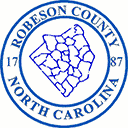COVID-19 and Agriculture
go.ncsu.edu/readext?665107
en Español / em Português
El inglés es el idioma de control de esta página. En la medida en que haya algún conflicto entre la traducción al inglés y la traducción, el inglés prevalece.
Al hacer clic en el enlace de traducción se activa un servicio de traducción gratuito para convertir la página al español. Al igual que con cualquier traducción por Internet, la conversión no es sensible al contexto y puede que no traduzca el texto en su significado original. NC State Extension no garantiza la exactitud del texto traducido. Por favor, tenga en cuenta que algunas aplicaciones y/o servicios pueden no funcionar como se espera cuando se traducen.
Português
Inglês é o idioma de controle desta página. Na medida que haja algum conflito entre o texto original em Inglês e a tradução, o Inglês prevalece.
Ao clicar no link de tradução, um serviço gratuito de tradução será ativado para converter a página para o Português. Como em qualquer tradução pela internet, a conversão não é sensivel ao contexto e pode não ocorrer a tradução para o significado orginal. O serviço de Extensão da Carolina do Norte (NC State Extension) não garante a exatidão do texto traduzido. Por favor, observe que algumas funções ou serviços podem não funcionar como esperado após a tradução.
English
English is the controlling language of this page. To the extent there is any conflict between the English text and the translation, English controls.
Clicking on the translation link activates a free translation service to convert the page to Spanish. As with any Internet translation, the conversion is not context-sensitive and may not translate the text to its original meaning. NC State Extension does not guarantee the accuracy of the translated text. Please note that some applications and/or services may not function as expected when translated.
Collapse ▲I am sure by now COVID-19 and the detrimental effects it is posing to our livelihood, small businesses, agriculture, and economy as a whole, is all the hype and focus right now. I wanted to highlight a couple of FAQs and quick things regarding COVID-19 and agriculture.
- Agriculture is a critical industry and includes workers from grocery stores, pharmacies, food processing, animal agriculture, farmworkers, and many more that are responsible for food supply. Here’s the full list of critical infrastructure workers in food and agriculture.
- North Carolina Department of Agriculture & Consumer Services (NCDA&CS) is working to make sure state and national leaders have measures in place in order to produce food in 2020. Planting season is upon us and much of NC agriculture, including fresh fruit and vegetable production, depends on H-2A guest worker farm labor. NCDA&CS has been engaged with the Department of Homeland Security and the U.S. State Department to ensure H-2A guest workers wishing to come to North Carolina remain able to do so.
- According to the Food and Drug Administration (FDA), food supply is safe and there is currently no evidence of food or food packaging being associated with the transmission of COVID-19.
- NC Department of Environmental Quality (DEQ) has granted a waiver from March 20 until June 1, 2020, postponing routine waste sample collection and analysis requirements for all permitted animal feeding operation facilities. This waiver will be re-evaluated for an extension depending on the COVID-19 outbreak status before June 1, 2020.
- NCDEQ will accept an Animal Facility Annual Report Form under permit condition III.18 for a covered facility as timely if the report is received by June 1, 2020.
- NC Choices recently launched NC MeatSuite. NC MeatSuite is an online marketing tool to help customers easily find locally produced meat in bulk from local farms. It is also a tool that allows farmers to list bulk meat products for sale. More information can be found at Meat Suite.
- All programs at the North Carolina Cooperative Extension, Robeson County Center have been postponed until further notice. As I write this, we are still open to the public, but are practicing social distancing; by the time this is published that may have changed. Our office will follow County guidelines and instructions for remaining open. We will continue working to answer any questions by phone or email.
- NCDA&CS has approved five (5) online classes for pesticide recertification credit. As of right now, these classes are only available to individuals who have an expiration/recertification date of June 30, 2020. Classes are $15 each and are approved for all ground applicator categories as well as Private X credit. Each of these classes has a test at the end that must be passed in order to receive credit for the class. The approved online classes can be found by going to their website, clicking the blue “Online Credit Options available!” link, then clicking the Approved Continuing Education Courses calendar link and entering “Online” in the search box. Approved online classes will have “Online” listed as the address and will have 6/30/2020 as the date but can be completed any time before then. Instructions for registering and paying may be found by clicking the plus symbol (+) to the left of the class description.
- Robeson County Farmers Market is planning to open on May 9 for the 2020 season.
- Soil samples will be free beginning on April 1, 2020.
If you have any questions regarding COVID-19, please refer to the Centers for Disease Control and Prevention (CDC) website. For more information, please contact Taylor Chavis, Extension Livestock Agent, at 910-671-3276, by Email at Taylor_Chavis@ncsu.edu, or visit our website.
NC State University and N.C. A&T State University are collectively committed to positive action to secure equal opportunity and prohibit discrimination and harassment regardless of age, color, disability, family and marital status, gender identity, genetic information, national origin, political beliefs, race, religion, sex (including pregnancy), sexual orientation, and veteran status. NC State University, N.C. A&T STate University, U.S. Department of Agriculture, and local governments cooperating.




